You're on the Young People Site
Dedicated to self-harm recovery, insight and support.

More young people than ever feel lonely. A recent survey by the BBC suggests that 40% of 16-24 year olds would say they feel lonely.
Most of us check our social media pretty often, and it looks like everyone else is having an amazing time doesn’t it? Pictures of them with friends at a party, on holiday with their family, chilling with friends that we don’t know, checking into the cinema with their partner…it looks like they aren’t lonely at all doesn’t it?
The reality is far from it – some people have many acquaintances to make it look like they aren’t lonely. They fill their lives with people who aren’t really friends and people they possibly don’t even trust much because they want to block out that feeling of loneliness.
Some people struggle to make friends and their online friends are the ones they talk to most because they can ‘pretend’ to be something they aren’t… but then end up feeling lonelier.
The common factor in the increase of loneliness in young people, is the rise in social media use because it doesn’t often create deep, meaningful friendships that are based on trust and shared lives. Ironically social media makes us feel lonelier, not less lonely.
So, let's look at some of the ways you could combat feeling lonely:
1️⃣ Seriously reduce your social media time.
2️⃣ Do something that creates connections with people face to face.
3️⃣ Find a hobby group – fitness, craft, music?
4️⃣ Eat with your family at mealtimes.
5️⃣ Say ‘yes’ to trying something new.
6️⃣ Connect with cousins, siblings, grandparents and wider family more.
There are lots of Organisations out there that offer opportunities to join groups or clubs in order to connect with other young people your own age. Do some research in your local area to find out what's going on and what you might like to get involved with.
If cooking's your bag - here at Youthscape, we offer something called Open House, which is a cookery project run by Gemma, our Drop-in Manager, and a professional chef! Over the eight weeks of the course you will learn to cook different dishes, improve your kitchen skills, and host a dinner for a disadvantaged group from the local community...
The aim of the project is to develop confidence in abilities, build relationships, integrate into our daily after-school Drop-in project, engage with a different group in the community, and through this become more connected, improve self-esteem, and begin to gain the skills that will enable young people to recognise and manage their feelings of loneliness and social isolation now and in the future.
If you are a young person aged 11-15 and living in Luton, why not get in touch with Gemma to find out more about our Open House project?
No one is to blame for feeling lonely: it’s not your fault, nor is it anyone else’s; so – this week; begin the journey to feeling less lonely.

Feel like you're having a bad day? Why not give the below homemade Pop tart pies recipe a go to help you feel a little better? 🙃
EVERY DAY MAY NOT BE GOOD, BUT THERE'S SOMETHING GOOD IN EVERY DAY HOMEMADE POP TART PIES RECIPE
Ingredients:
- 1 (15 ounce) package refrigerated pie crusts
- 1/4 cup strawberry jam, divided
- 2 cups confectioners' sugar
- 2 tablespoons milk
- 1/2 teaspoon vanilla extract
- 1 tablespoon coloured decorating sugar, or as needed
Method:
- Preheat oven to 425 degrees F (220 degrees C). Line baking sheets with parchment paper.
- Unroll the pie crusts, place on a lightly floured work surface, and roll the crusts slightly with a rolling pin to square the edges. Cut each crust into 8 equal-sized rectangles. Place about 2 teaspoons of strawberry jam in the center of 8 squares, and spread the jam out to within 1/4 inch of the edge of the pastry square. Top each with another pastry square, and use a fork to crimp the squares together, sealing in the jam. Use a knife to trim the pastries, if desired. Move the filled pastries to the prepared baking sheets.
- Bake in the preheated oven until the edges are lightly golden brown, about 7 minutes. Allow to cool on the baking sheets. Meanwhile, stir together the confectioners' sugar, milk, and vanilla extract in a bowl to make a spreadable frosting. Spread the cooled tarts with frosting and sprinkle with colored sugar.

Some young Japanese men are refusing to leave their bedrooms and are choosing to withdraw themselves from society. The reasons aren't always very clear, but in Japan, it's known as hikikomori.
Hikikomori refers to the act of isolation, and to the young men themselves. The word translates as 'pulling inward' or 'being confined'. Often, a hikikomori's family are both ashamed and at a loss as to how to help their child. Some men have not left their own houses in over a decade!
Isolation and loneliness can have a major impact on our mental health. A scheme called 'Rent-a-sister' in Japan is being used to help these hikkomori men to begin to recovery from their reclusiveness. You can watch more about this here.

A New Year reflection by Elizabeth.
First and foremost a shout out to SelfharmUK, they have been doing such a fantastic job of providing a platform for people to speak out.
When I started to open up about the challenges I was facing, (most of which only existed in my mind), things started to change for me. We all go through tough times, but know that without the valleys you can’t enjoy the hilltop experiences. So, here’s a little bit of my journey to where I am now.
Reflection for me is something I don’t do very often, I find it hard to do, particularly in the business of life. I find myself either constantly planning for the next thing and not enjoying each moment or being distracted by things around me (like pointless new feeds on my phone!). I noticed that I got to the point where I found it quite hard to remember what I was doing throughout each day. So, in January as we always do, I decided before I went to bed, I would reflect on the day and be thankful for conversations I had that day, people I’d met and moments I would learn from. Well like January resolutions happen, it started and stopped. One thought I do remember though, is how excited I was for the year ahead as I had several opportunities of leading at events and I had a few little breaks away with family. Little did I know that on one of my long weekends away, my boyfriend would propose to me! You never know what's around the corner.
In January I was starting a new job as a youth and children’s worker in my hometown, Leighton Buzzard. It has been my passion to be able to work with young people in my local area. Having struggled a lot, myself at school with friendships, self-confidence, and academia, I wanted to give back where my youth leaders had helped me. This new role couldn’t have come at a more poignant time. When I returned home, I found out that sadly there were three suicides in quick succession over the Christmas period. For me this just solidified the reasons why I wanted to go back. There desperately needed to be more support for every family, schools, and community.
Throughout this past year I’ve learned many lessons from this new role, some of which have been very painful, but all of which have helped build my character for the better. People pleasing, rest and time management are a few of those things I needed to change. I know that if I want to work with families, schools and communities I won’t please everyone. Not only that, I can’t take on other people’s problems, I can be there as someone to be listening and supporting, but I must learn to rest and take time out for me. Otherwise, I’ll burn out! This is something I find very difficult and I am constantly being reminded of that. For me, my relationship with Jesus is paramount to my everyday life, my identity is not in how much I do, or if something is successful or not, it is that I am loved by my father in Heaven.
One reflection this year I have enjoyed remembering is, the priceless moments of being able to tell those who needed to hear, listen to those who needed an ear and walk alongside those who needed a peer. Whether it be in our mums and tots’ groups, Sunday Celebrations, or our youth connect groups. I have been given the chance to have those one to one times and hear other stories. We have all taken some helpful insights from each other and been able to apply it to our life.
As each month has passed, I could easily have forgotten all the amazing opportunities I had. One, because I wanted to forget, and two, because of sheer busyness. I was being drawn out of my comfort zone so many times. On a few occasions, I was so anxious that I wanted to turn around and run away. I had to battle in my mind, constant negative thoughts, and the lies I kept hearing in my head like “I can’t do this”, “I’m not good enough”, “people are annoyed with you” etc. I can’t say I loved being in that place, but I can say we all go through hills and valleys. Without the bad experiences, you can’t appreciate the good ones. What good moments have you had this year that have helped shape you for the better?

The blog post below was written by Sophie, a previous Graduate Volunteer with SelfharmUK and Youthscape.
I’m not usually someone who gets really excited for Christmas Day. For as long as I can remember, I was always at my mum’s for half of the day and my dad’s for the other half. I never really had a problem with having two homes – it was quite nice sometimes! But Christmas is the time when having a broken family is highlighted. Seeing other people’s festive photos would get to me. Obviously I knew not everyone was having the perfect Christmas, but seeing friends having big, ‘perfect’ family do’s would just remind me that I didn’t have that. At one house, it was almost like people were trying to play happy families when it wasn’t the case at all. It just felt forced and awkward.
I don’t find it as much of an issue now, and I’m even prepared for the drama I know will take place this year! But around Christmastime, feelings are automatically triggered for me based on how I’ve experienced Christmas in the past. So over the years it’s become normal to not feel the best during this time, but it’s something that is changing!
A few years ago, I was out with some friends and the place where we were, happened to have a Christmas themed night (bearing in mind it was April, so I don’t know what was going on there!) They’d play a Christmas song every few songs and it got to the point where I had to take a step outside as it was just making me feel down. Of course, everyone LOVED it, and they were dancing around, singing at the top of their lungs. I thought everyone liked Christmas, until one of my friends joined me outside. I explained why I was out there, and she turned to me and shared how she didn’t really like Christmas that much either. She was just going along with it, having a sing and dance. It was SO refreshing to hear I wasn’t the only one in there pretending.
However you are feeling this Christmas, you are not alone.
Did you know that it’s okay to not be okay at Christmas?
It sometimes seems like we have to be so joyful at Christmas, so we put on fake smiles and go along with the festivities when really, for some, it’s a time of pain, anxiety, stress. Perhaps Christmas reminds you that a loved one is no longer with you, perhaps it reminds you of how broken your family is. There are many reasons why Christmas may not be the happiest time of the year for you, and that’s totally okay.
The thing is, it’s pretty hard to avoid Christmas altogether, but there are always ways you can try and make it easier for yourself.
Knowing that the urge to self harm is usually heightened at Christmas can give you the upper hand as it won’t catch you off guard. It means you can come up with a number of distractions and other ways to cope in those moments. You can find some suggestions here. Take time for yourself this Christmas – you don’t have to fake how you’re feeling.
This year I’m choosing to shift my focus from the things I don’t like about Christmas, to the things I’m thankful for, appreciating what I do have rather than what I don’t. I want to be thinking more about the real meaning of Christmas rather than being so caught up in my own circumstances. I’m going to make more time for self-care; doing things that help energise and fill me rather than drain me.
A YouTuber I’ve found to be really helpful is Kati Morton. She is a licenced therapist and creates videos on a broad range of topics surrounding mental health and answers questions from her viewers. My particular favourite this year is a video where she gives some handy tips on how you can stay mindful at Christmas...
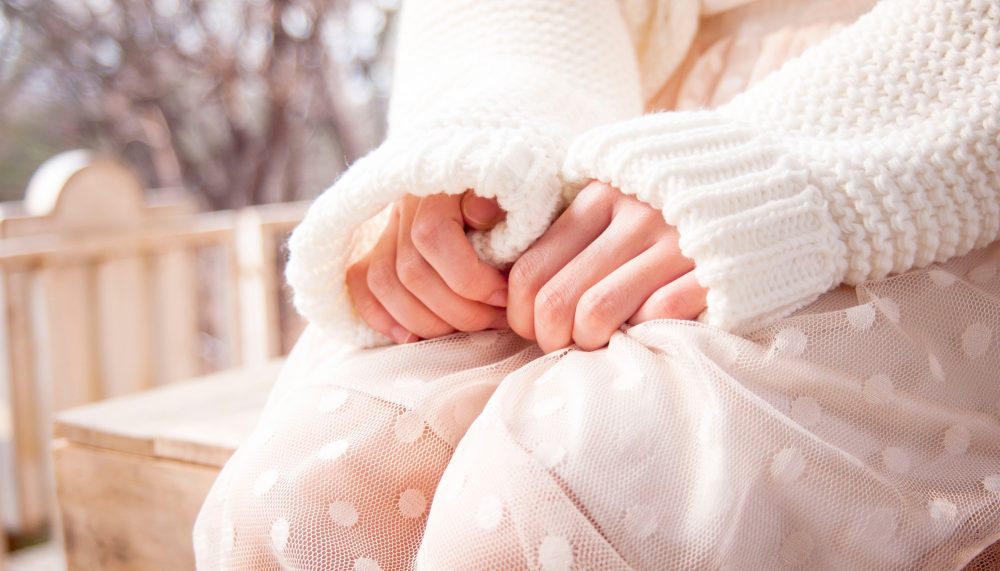
Some people like this lead up to Christmas, some (like me and my family!), really don’t!
The Christmas decorations look pretty and the shops get busier and the Christmas feeling is in the air – but it doesn’t make me get the warm Christmas glow; in fact it begins to make me stressed right from the moment it starts…
The pressure for the perfect film like Christmas family gathering is unachievable – the perfect family game time; the perfect present wrapping, the perfect friends to go out with, the perfect family to share it will – perfection doesn’t exist, in any place at any time.
The media Christmas portrayal adds to our sense of dread – the pressure to smile, laugh, not row, not feel sad – can make us feel very detached from Christmas: so this year, in the lead up here are some tips:
1. Ignore TV films and adverts! We aren’t going to reach a Hollywood Christmas ideal – so let’s not bother. Watch Elf and comedies – they keep a good perspective on it!
2. Try to imagine Christmas day now – what works for you? Do you need to communicate any of that to your family – who don’t you want to see over Christmas? How long do you have to visit relatives for? Begin to start the conversations now so they don’t come as a shock to your family – take control and be prepared to compromise.
3. Make stuff – loads and loads of stuff! Don’t buy it, make it. Keep your hands and mind busy, the personal stuff doesn’t need to cost much nor does it have to be perfect – enjoy the process and the result.
4. Don’t give yourself sky high expectations of yourself over Christmas. If you need to take regular breaks from family, do it. Look after yourself now so that you have the energy for it as it gets closer; plan out the Christmas holidays so that you get a good balance of rest and play.
Love,
The SelfharmUK Team

The blog below was written by Jo Fitzsimmons, a member of the SelfharmUK Team.
Caring for others is often far easier than caring for ourselves, don’t you think?
Listening to others is one of the best gifts we can offer someone – the chance to be heard, to empty their worries and fears with us and for us to offer care, support and hope – is an incredible life giving gift.
Yet; how much do we listen to ourselves? Do we allow our own fears, worries and thoughts to be hard by others?
How do we offer ourself the same care and friendship that we extend to those we love?
I’m getting a bit older now and (I like to think) a little wiser. I now recognise I can’t help everyone or rescue them from their situations, but I can offer a listening ear or kind word... Only if I offer myself the same self compassion and care that I offer them!
To do this, I like to write a list of all the nice, encouraging, kind, thoughtful things I do to help others – and I apply it to me.
I tell myself how strong I am; how brave I am; how proud I am of me; and how thoughtful I am. I encourage myself to speak out my worries to a trusted person so I don’t feel alone with my fears; I allow myself to appreciate the things I am good at - and I outrightly laugh at myself when I make mistakes and look a bit silly!
For every person I help; I aim to help myself – by giving myself a break, by watching my favourite soap (Hollyoaks everytime!), by treating myself to a nice shampoo or baking a cake.
This week, on Self Care week, try one of these actions each day. It’s not selfish; it is life giving and will help you to become a better friend, a better son/daughter or a better sibling...
- Look in the mirror and say one thing you like about yourself
- Today, think of one good thing you have done to help someone and think about how it felt
- Encourage yourself – you are braver and stronger than you will ever realise
- Name one thing you are proud of in your life
- Do something thoughtful for yourself in the same way you would for a friend (bake your favourite cake/watch your favourite tv show)
- Take yourself to a place you enjoy
- Spend time with people who love you and make you smile
Now here's some GIFs to really get you in the mood 😂
Enjoy caring for you this Self Care Week!

In this article, SelfharmUK Web Manager Jess chats to colleagues Jo and Helen about mental health and being a teenager for #WMHD
SHUK: Who are you and what do you do at SelfharmUK?
J: I am Jo, I run the Alumina programmes most nights of the week. And this is a photo of me when I was a teenager...
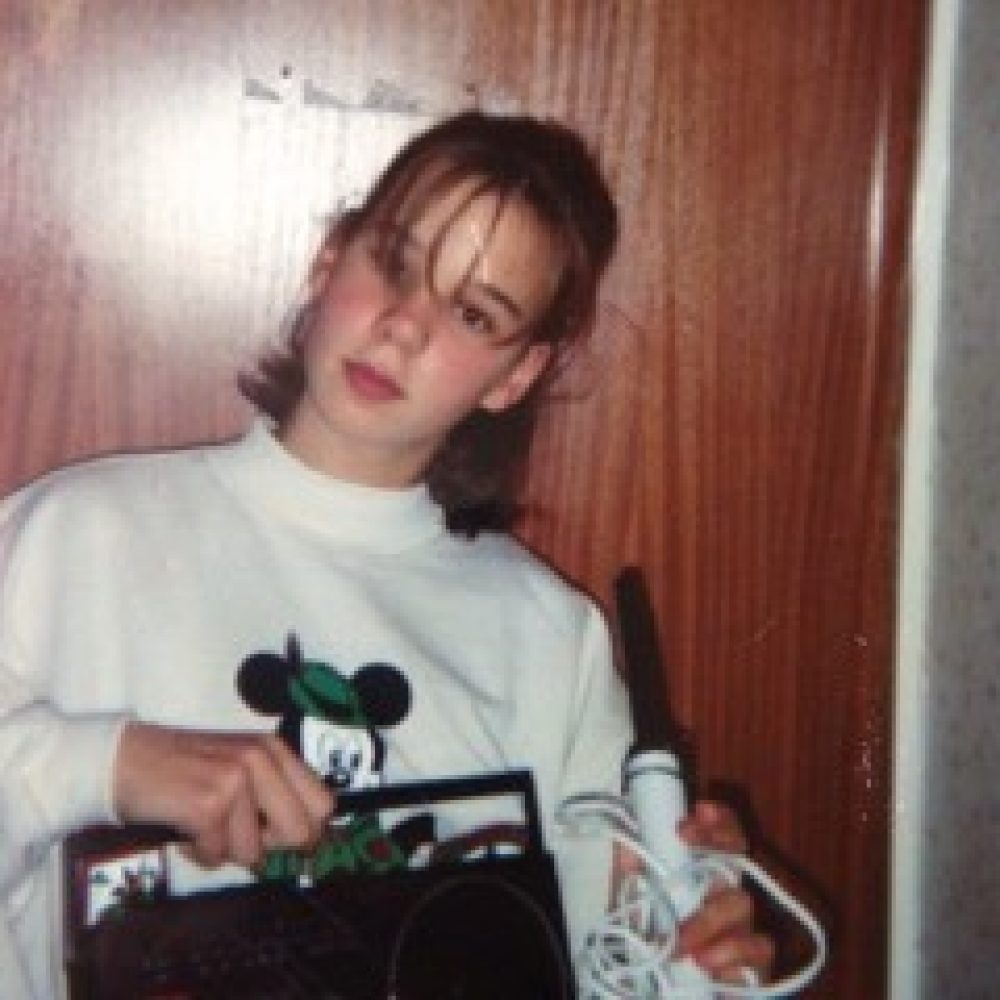
H: My name is Helen and I head up the emotional and mental wellbeing work that we do in Luton, this work feeds into what we do with the website and gives the young people of Luton a voice in what we do. I also deliver training and give lots of talks on mental health. This is a photo of me when I was a teenager...

SHUK: How has your understanding of the importance of looking after your mental wellbeing changed from when you were a young person?
J: I didn’t have a clue about it as a teenager; I was told it was attention seeking behaviour if you were down, sad or angry. Now, because i have struggled with anxiety and depression at times, I understand that that is so far from the truth.
H: When I was a teenager and you were struggling with your mental health it was put down as "hormones" or "attention seeking" because of this I didn’t understand that your mental health was something you had to look after and just thought it was something you had to be ashamed of. Now I know it is just as important as looking after my physical health, I go to the doctor for my asthma, which means that I also go to the doctor when I’m struggling with stress or anxiety.
SHUK: What do you think was your hardest life change as a teenager to adapt to?
H: Being noticed maybe? Every few years my mum would have another baby and so I just spent a lot of time feeling lost and unimportant. Especially as three of my siblings were in school with me and they all had better grades and didn’t get into trouble like me. I felt like an outcast at home and in school and with my friends.
J: For me it was bereavement. My best friend was killed in a car crash and I lost my much loved grandma all within a month. Loss effects our mental health greatly, I just didn’t realise how much when I was 12.
SHUK: What do you think is the hardest change for young people to adapt to now a days?
J: I think social media plays a huge part in how we feel about ourselves; how we want to look perfect and look like we are having fun because we believe everyone else is. I know it’s not true as everyone is struggling with their own stuff, also trying to make it look like they are having an awesome time. It is hard to turn away from social media.
H: I think the change from being a child to an adult, it’s hard to adapt to when you are expected to be an adult and make adult decisions (such as choices about your future) but at the same time being treated like a child and still dealing with the physical changes of becoming and adult.
SHUK: When you were having a bad mental wellbeing day at School, what did you do? Was there someone you could tell? What did they say? Did you tell your friends? Did they understand?
J: I struggled to talk about my feelings when i was a teenager as my family didn’t encourage us too so , I didn’t tell anyone until I was in my late teens about how hard i had found certain things. I regret that now, which is why I do my job: I know the value of someone listening to you.
H: I didn’t really have anyone to talk to. I would yell at people or walk out of lessons or get in fights. When I expressed how much I was struggling to a few of my friends they would call me a "psycho" and would walk away from me until I was “normal” again. I just felt ashamed.
SHUK: What advice would you give to young people struggling with any aspect of their mental wellbeing?
J: Find help - whether that’s through a friend, parent, counsellor, online safe place (Childline, The Mix or Young Minds) - and begin to explore why you feel like you do. Don’t stay silent, there’s people who want to help.
H: Ask for help, people are much more understanding now, it’s not something to be ashamed of and there are loads of different places you can get help from, online, in person, over the phone and more (as Jo has mentioned above). Also find healthy ways of expressing how you feel, art, music, baking, writing, working with animals. Mostly be kind to yourself.

What have all these people got in common?
· Matilda
· Charlie
· James
· Sophie
· Danny
Yup, they are all imaginary characters, from the imagination of Roald Dahl. None of them are real, none of their lives are real. And yet…
They are orphans, sufferers, victims of bullying, often worried, scared and voiceless, strugglers who undergo changes to become the heroes of their own destinies.
Don’t we sometimes wish we could have that one person who encourages us, inspires us and help us, a magical person to guide us through our trials and pains?
Of course, you know that real life doesn’t have magic, Big Friendly Giants nor gigantic peaches that we can fly away on.
It does, however, hold real life catalysts: people who can help us become more of the person we want to be. These catalytic people are people who listen to us, who help us deal with the daily challenges we face. They might be a friend, a family member, a teacher, a counsellor, a CAMHS worker.
They aren’t magicians, they can’t make everything better, but, if just for 10 minutes a day, they make you feel like you can do this, then they are your BFG or Miss Honey.
Find your Miss Honey today!

The Hope group is a small group of young girls that meet every week to help each other encourage positive mental health and emotional wellbeing within their every day lives.
The group has been running for a few months now and we wanted to share with you some of what we've been up to. So far, we've...
Talked about our aims for the group 👍 ------>
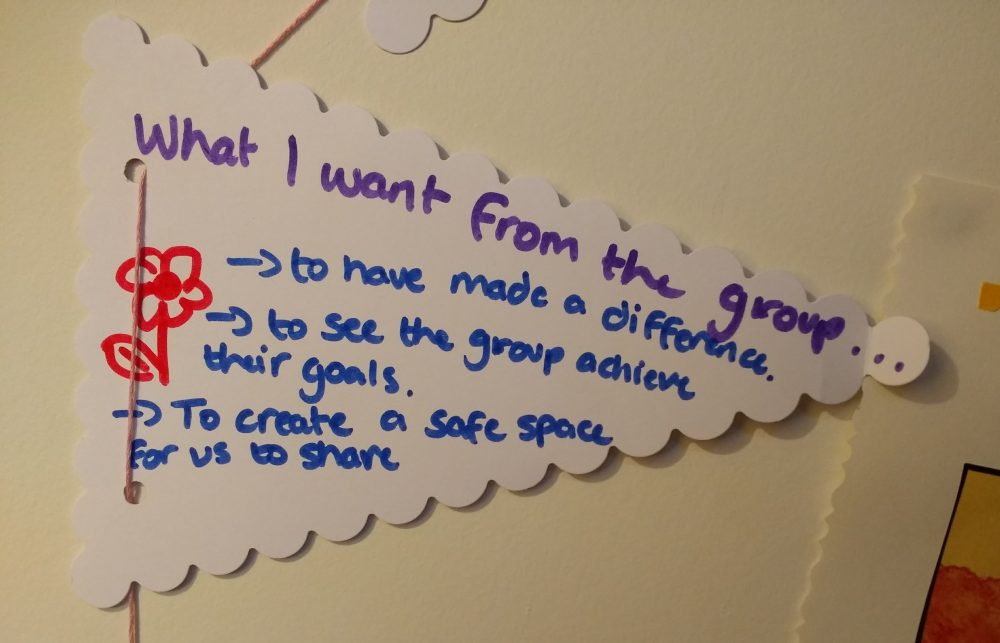
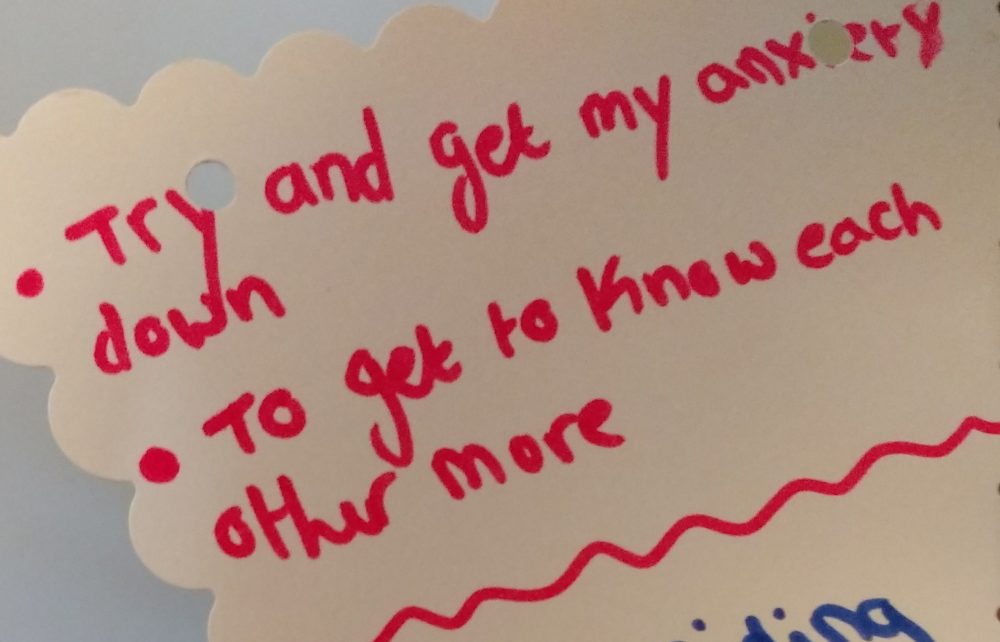
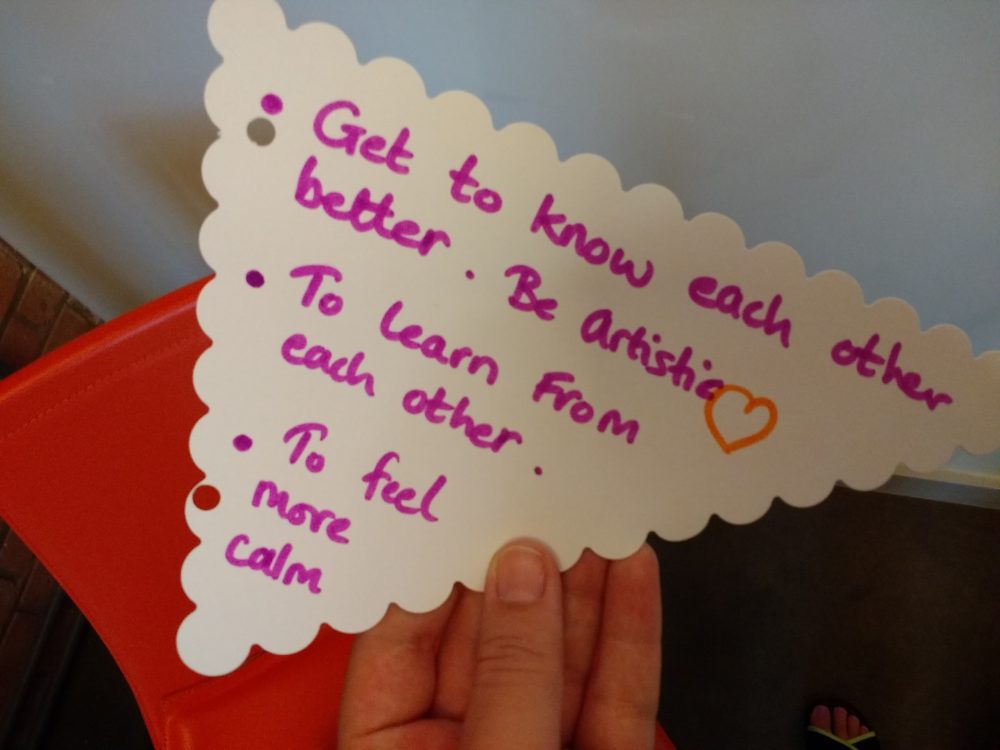
Shared what helps us when we're having tough days 👎 ------>
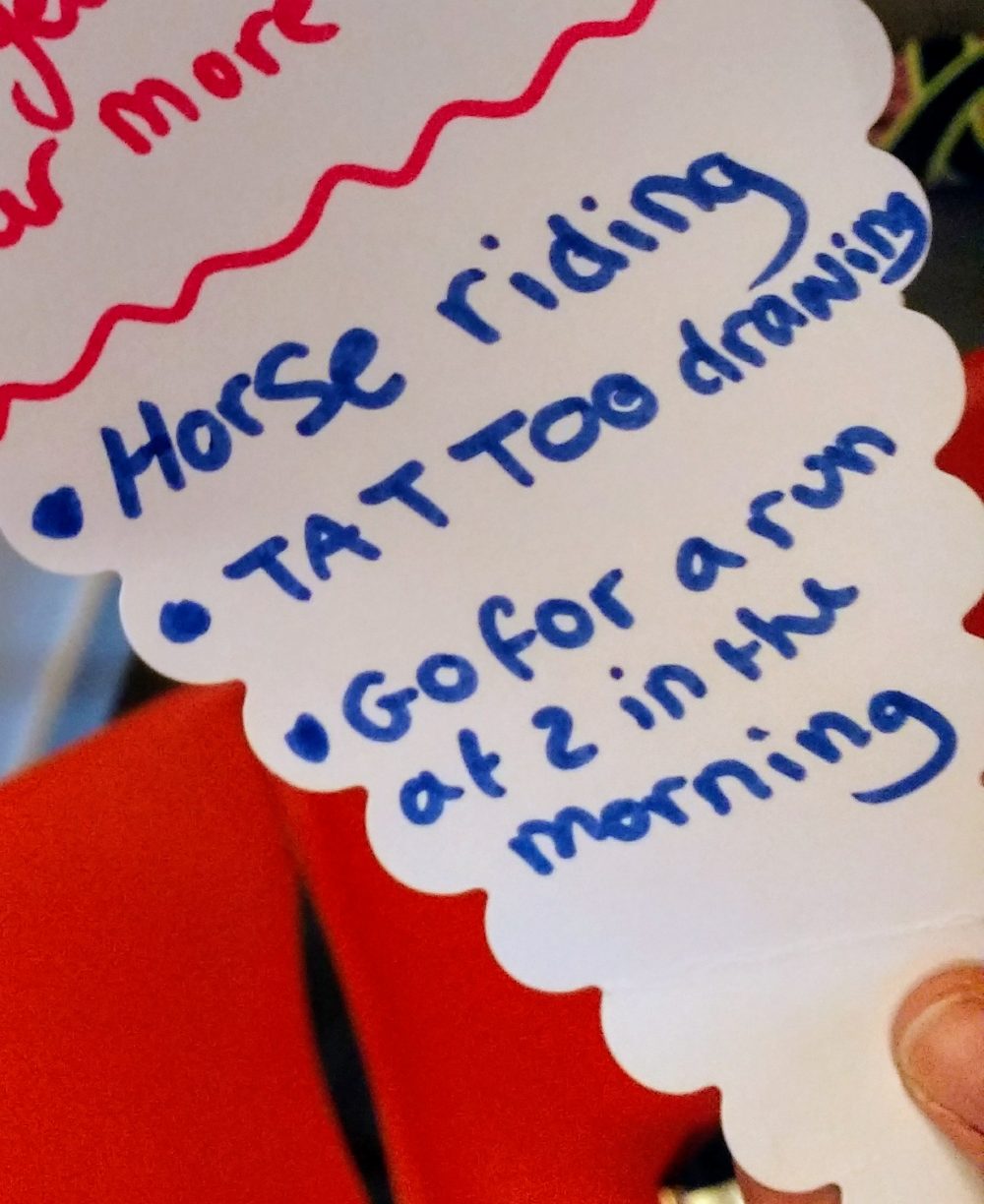
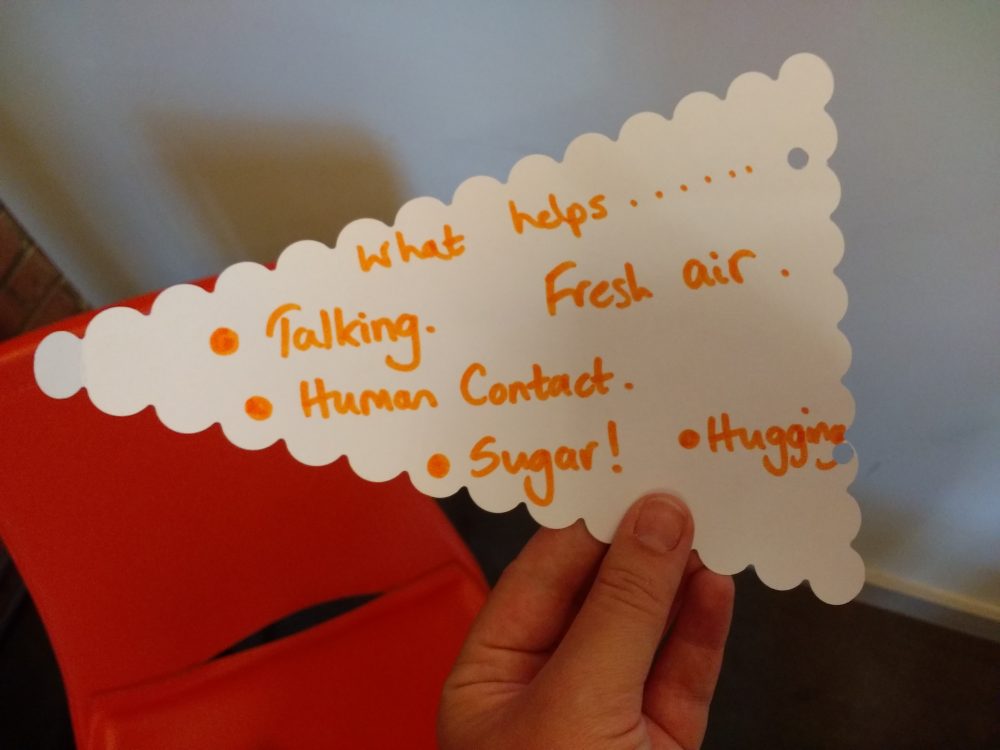
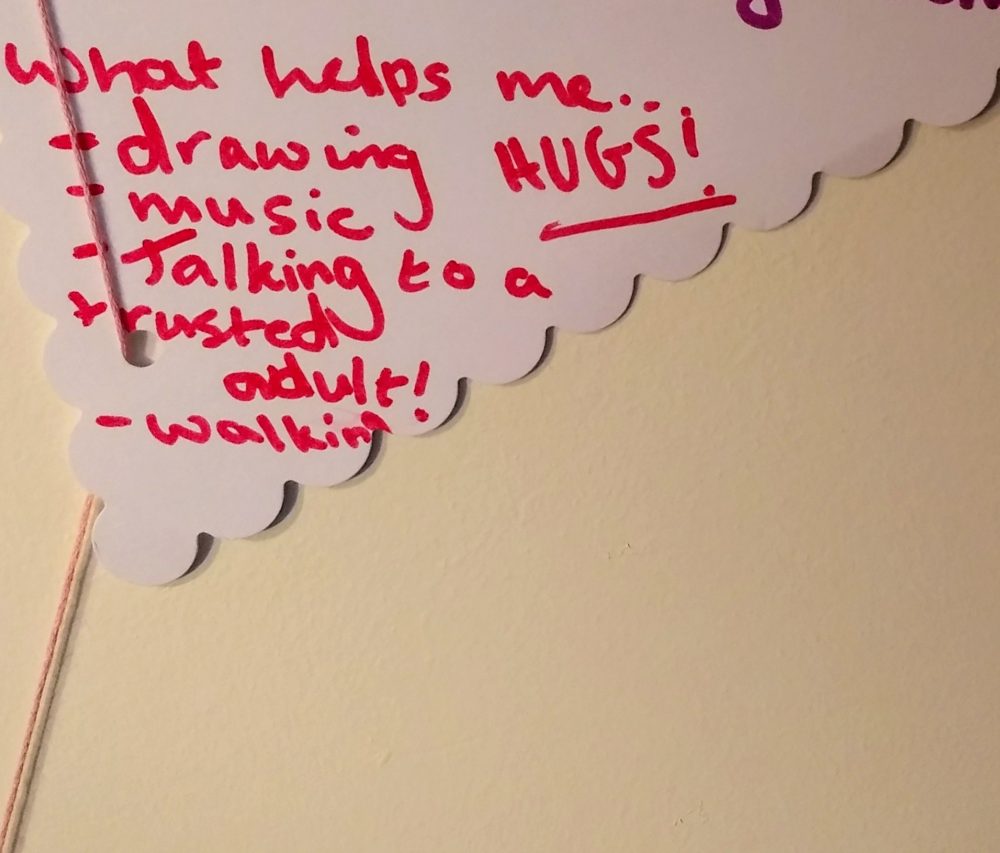
Discussed the things we're looking forward to 👀 ------>
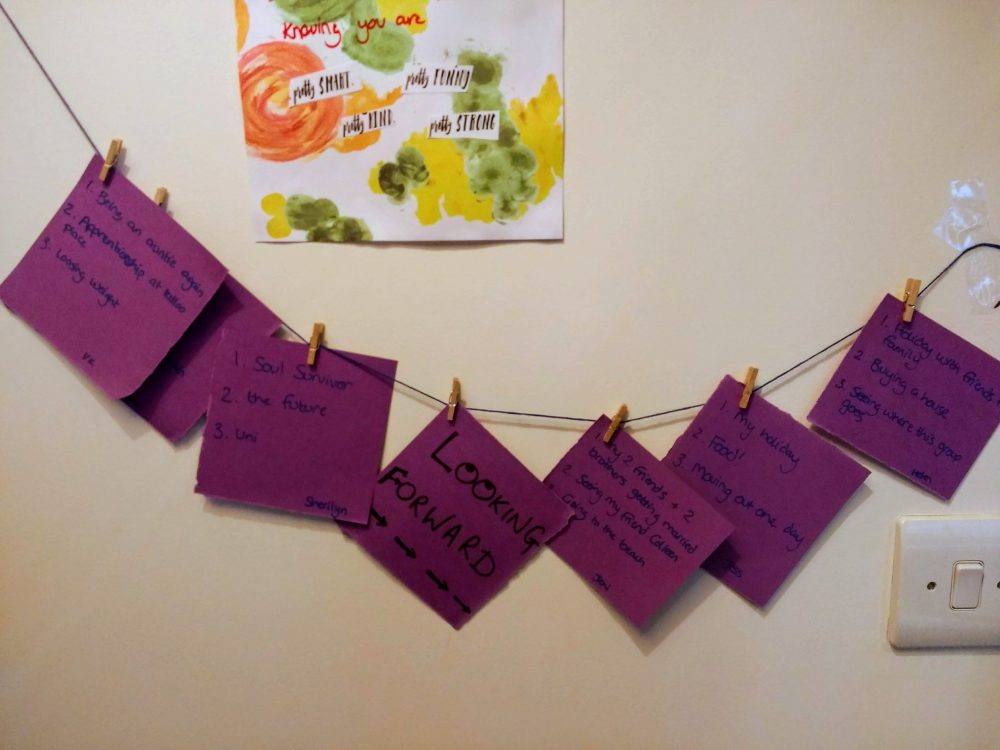
And the things we're always thankful for 💝 ------>
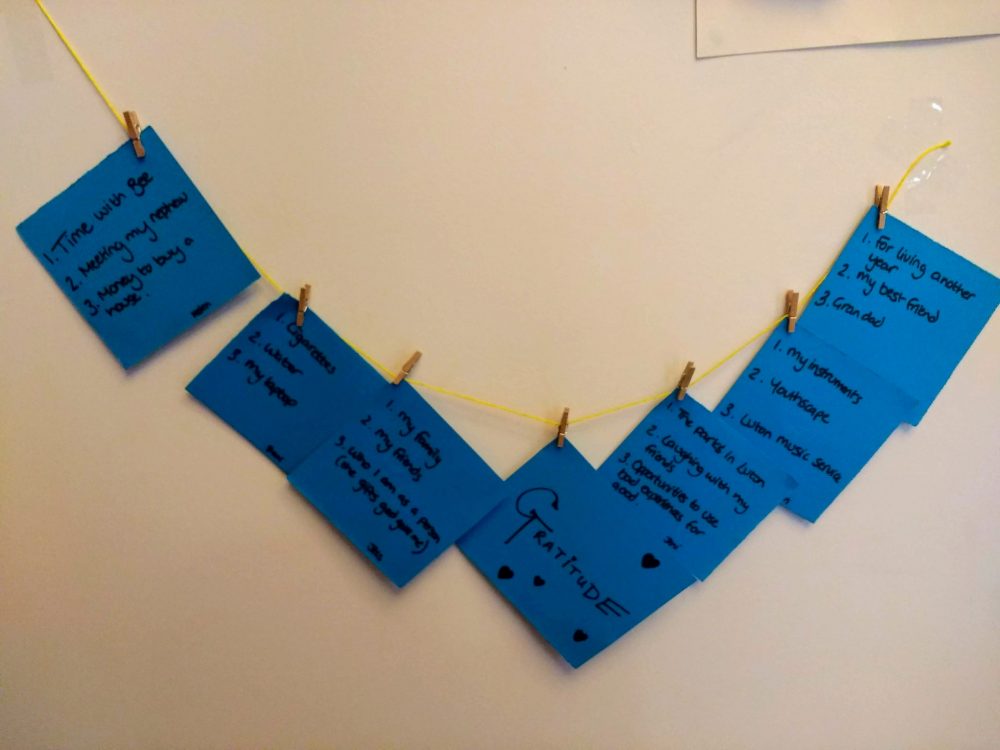
We've even created and designed our own positive quotes 💙 ------>
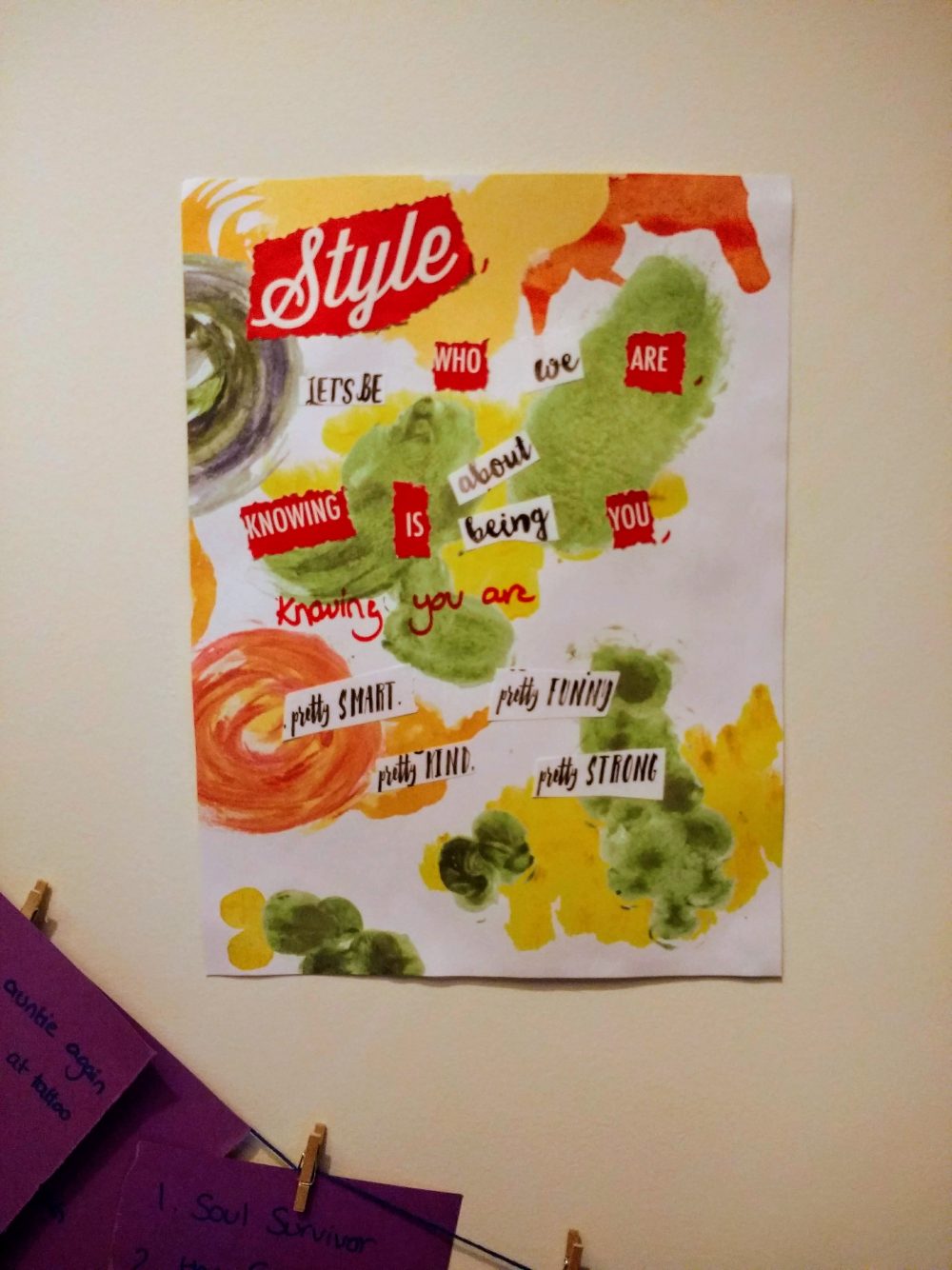
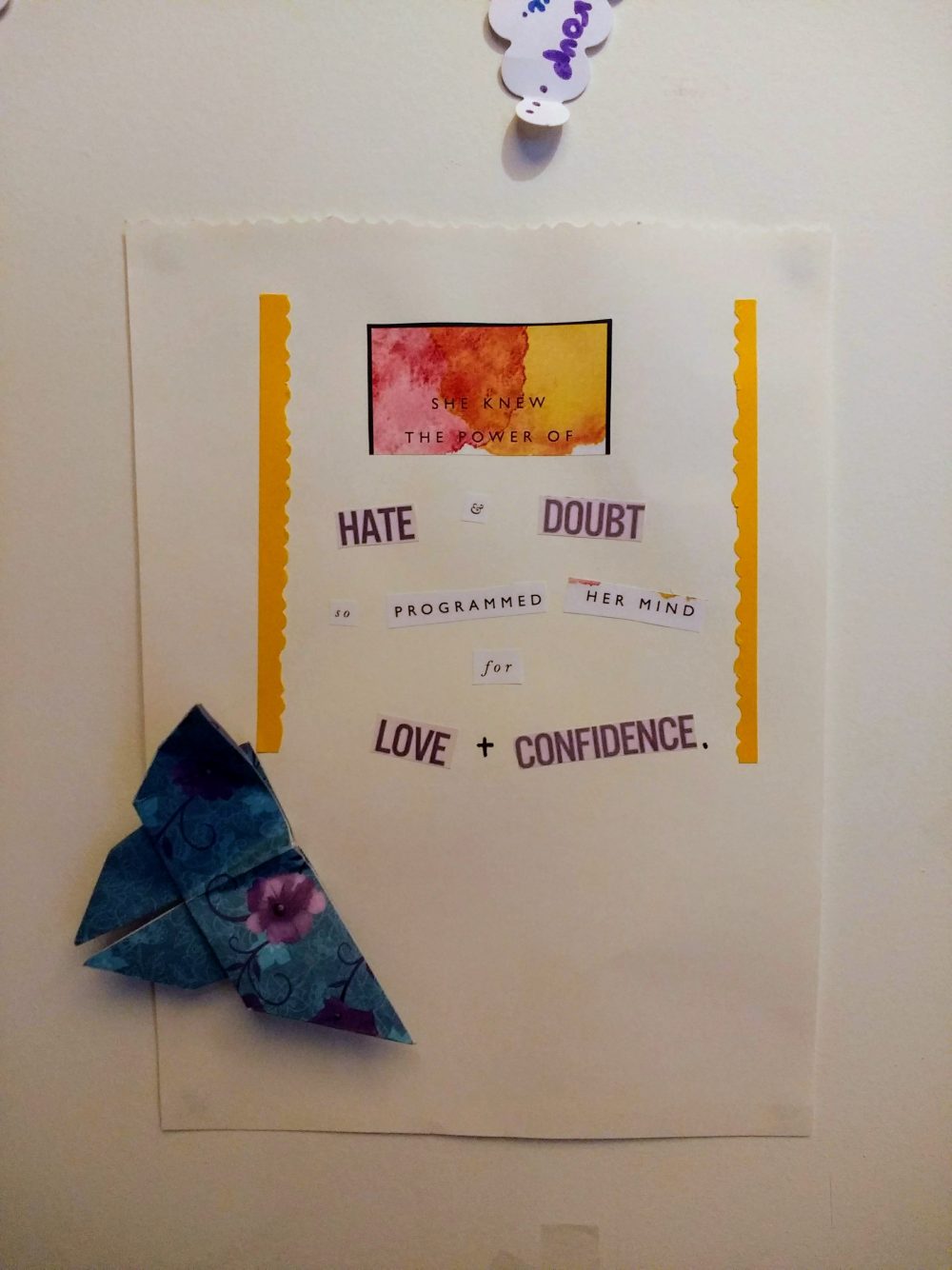
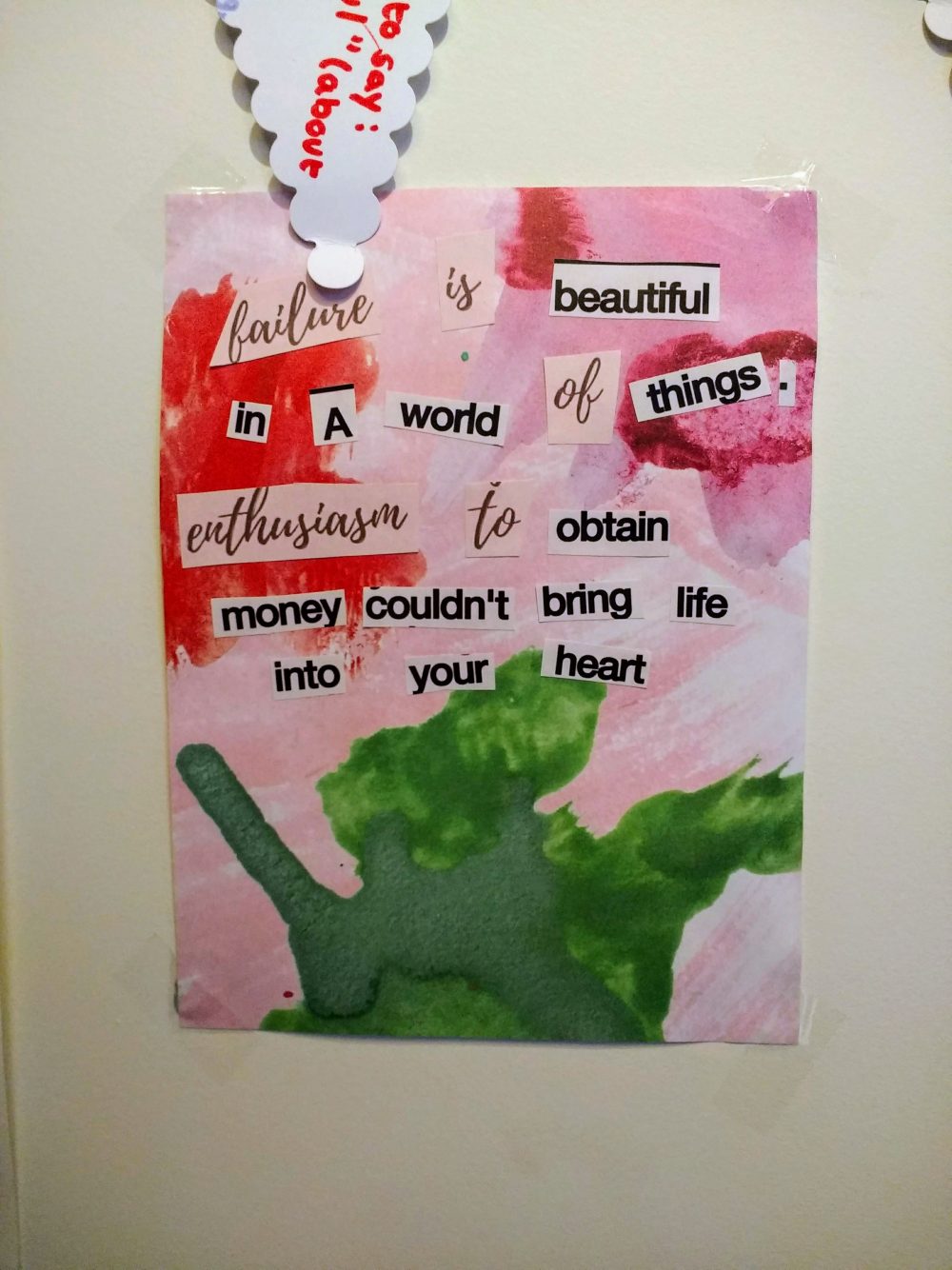
And did some decoupage too 🦄 ------>
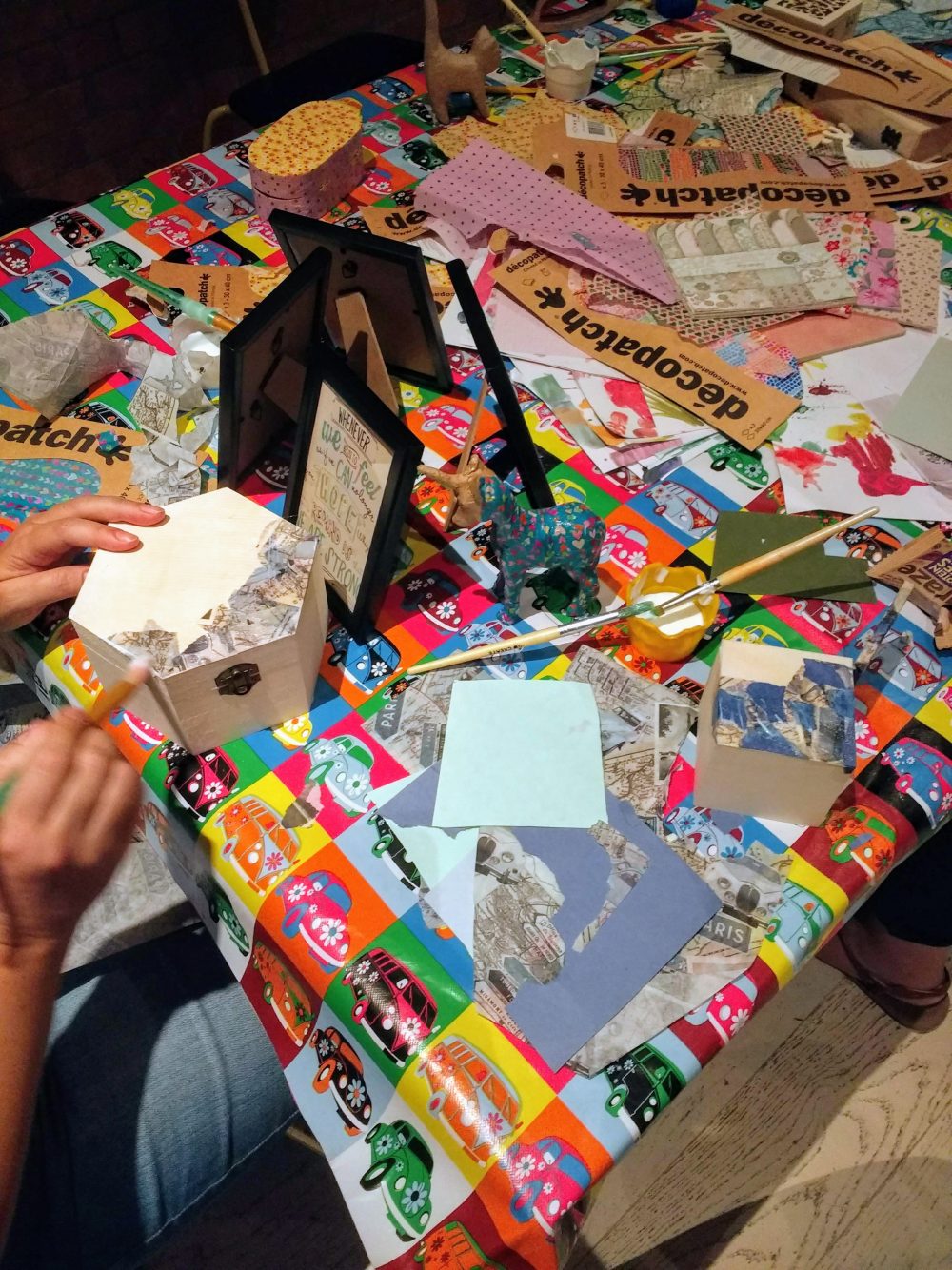
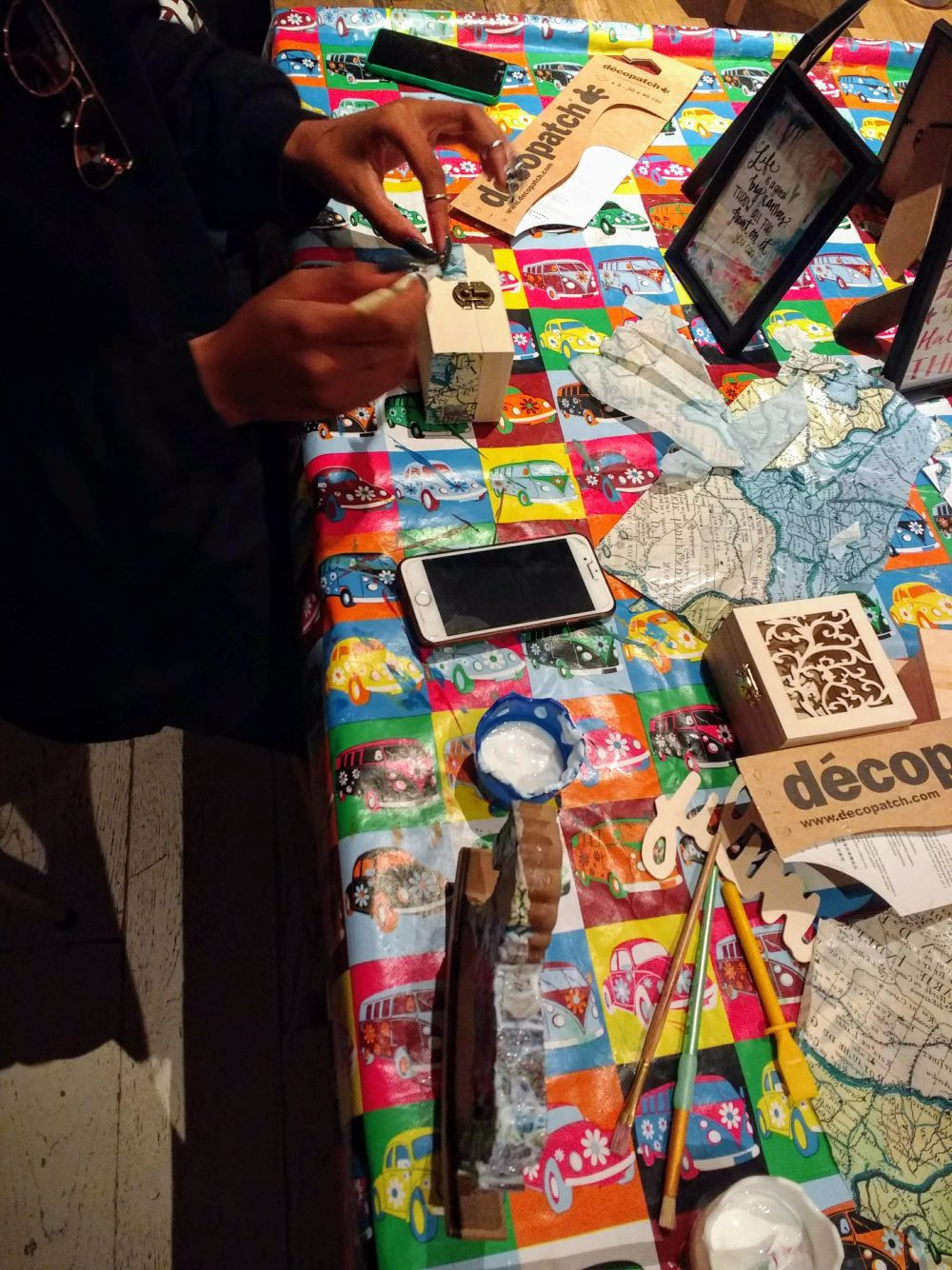
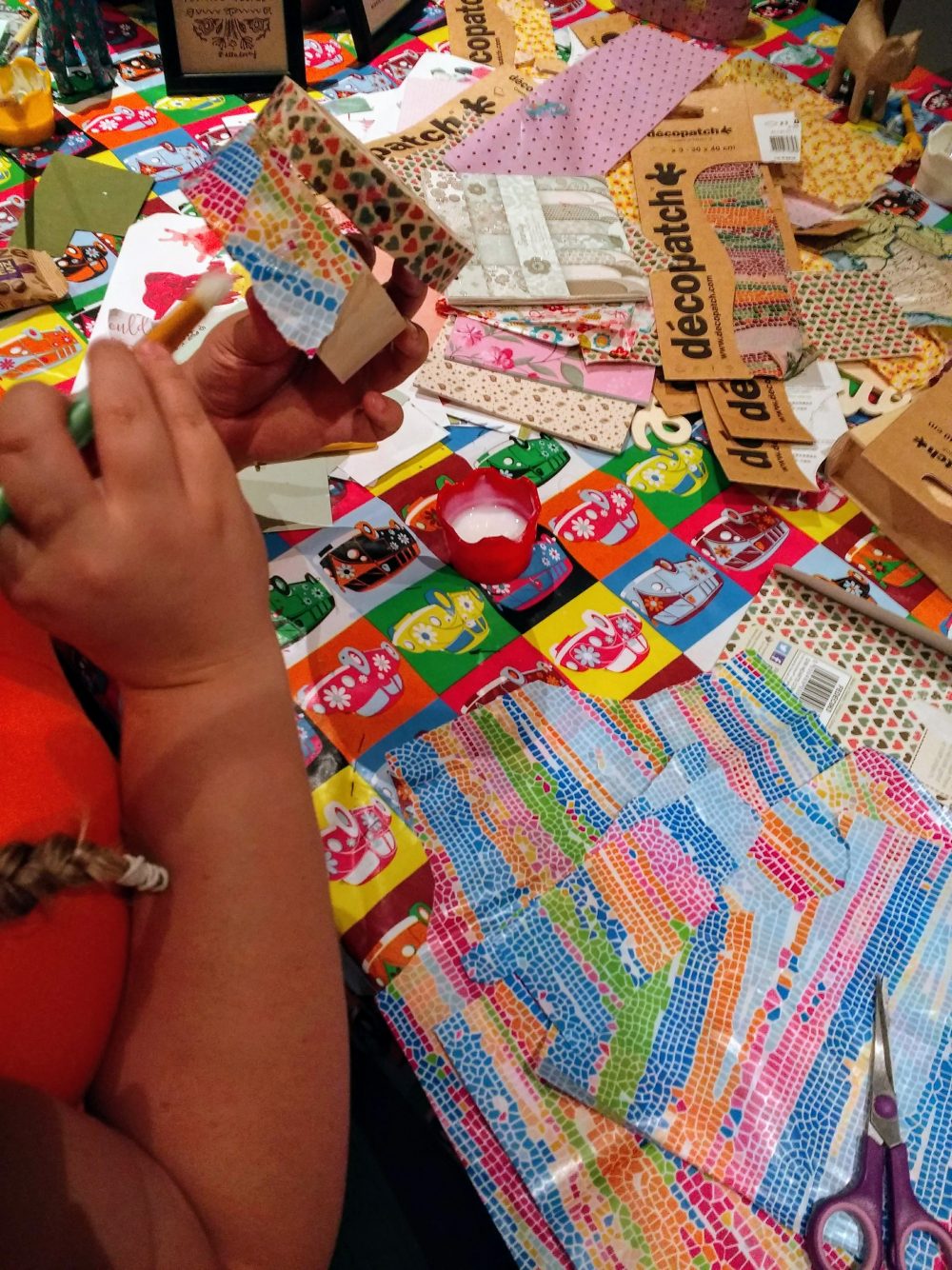
If we could give you any message, that message would be to believe and to have hope that whatever you're going through, you're going to get through it and become a stronger person because of it 💪 ------>
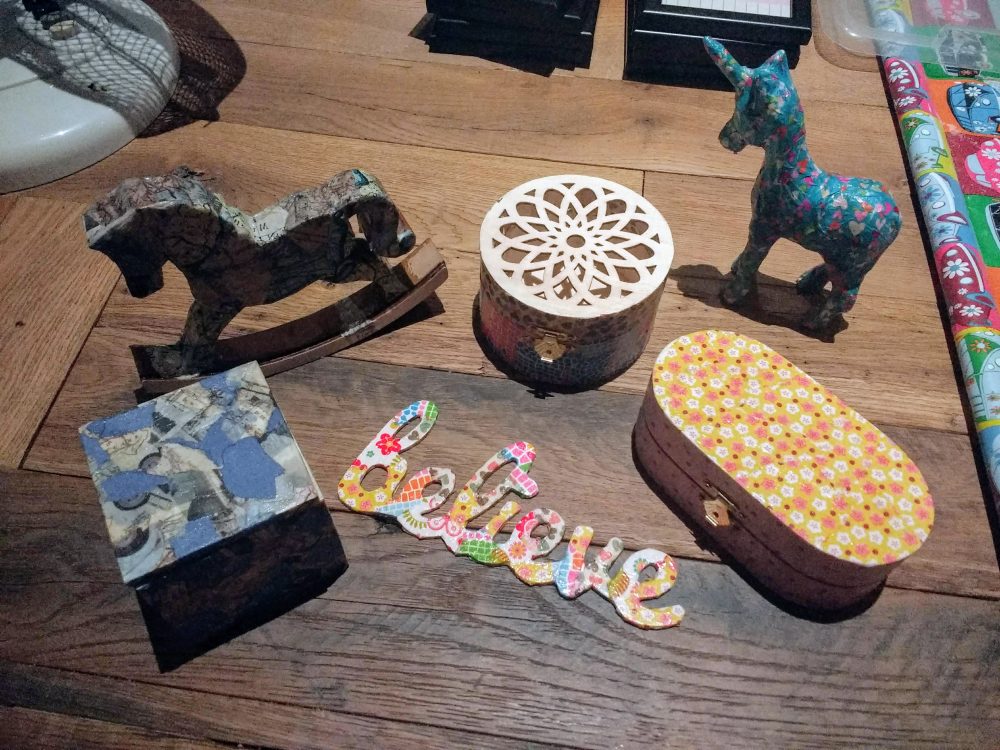
Love, the Hope group x

I don’t know about you, but having patience is something I really struggle with. A quick Google definition search brings up that the word ‘Patience’ means ‘the capacity to accept or tolerate delay, problems, or suffering without becoming annoyed or anxious’ and the example given is "You can find bargains if you have the patience to sift through the rubbish."
You know that saying ‘all good things come to those who wait’? Well that’s all well and good, but how do I know how long I should wait?
Life can sometimes feel like a bit of a waiting game. When we’re young and at school, we wait for the Christmas holidays and then the summer holidays, and as we get older we wait for the end of school, the end of college and then the end of university. Once we start work, we wait for the pay rises, promotions and job changes; and in our personal lives we wait to buy our first car, our first flat, to meet someone, and to hopefully buy our forever home.
But not all of these things are a given and that’s where my struggle to have patience comes in. If I don’t know something is guaranteed to happen - what if I end up wasting my life waiting for it?
When you suffer from anxiety, having patience can seem impossible. My anxiety is often caused by my constant catastrophizing and endless ‘what if…?’ questions that I allow to spin around and round in my mind… “what if I never get a promotion?”, “what if I never move out of my mum’s house?” and “what if I never meet anyone?”. These are completely irrational thoughts as they aren’t based on any fact!
But irrational thoughts often cause us to act irrationally. So, instead of having patience, I regularly lose my temper and blame the people I love for the fact that I’m not where I want to be in life. Whilst behaving this way always feels good at the time, in the long run it actually makes me feel bad about myself and brings me no closer to answering those “what if…” questions.
Perhaps the key to finding patience and knowing how long to wait is to simply change the question. Instead of worrying ‘what if I never get a promotion?’, I should change the question to become ‘what if I don’t get a promotion in the next five years?’. By putting a realistic time frame on it, this not only helps me to feel positive about it potentially happening, but it also helps me to feel in control of how long I should wait, which then in turn, encourages me to be patient.
Think you could give it a go? Maybe this will help…
Let’s turn that example from Google into something a bit more relatable:

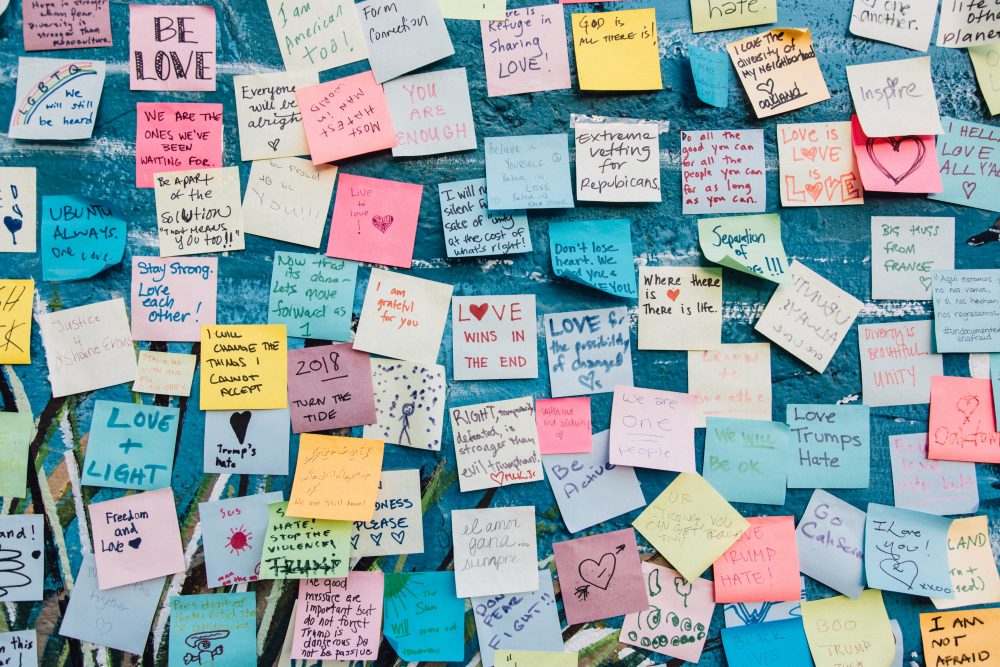
Changing yourself: not in any big way and not too much at once. Choose one area at a time and work on that. School? A friendship? Your relationship with your parents? The more in control we feel of the choices we make; the better our mental health.
Asking for help: it is hard to ask for help as we are admitting we can’t manage on our own, but the reality is, we aren’t made to. If you think we way to the beginning of time, people have always existed in groups – none of us are meant to manage life on our own so asking for help, not only helps you but actually creates stronger relationships too. Who would you like to ask for help?
Saying no: it’s a hugely important skill. We all need to practise it more, as it means we are taking control about what we don’t want to do; who we don’t to spend to time with; what we aren’t comfortable with…. Is there anything you want to say no to?
Making small steps: don’t try and leap… one small decision a day is a big step forward. Often we want to change so fast and we want it all done now. There are many trite sayings but the fact is, they are true. Long lasting change takes a lot of time and investment. What small step would you like to make today?

Telling someone is a long and hard process for many of us – it starts by choosing who, then deciding how to tell them (face to face, via text or on the phone) then we have to work out what words to use…
The overwhelming response from telling the right person is the feeling of being supported. Once they have heard you and tried to help you work out why; they should suggest telling a professional person like a teacher or Doctor.
A teacher, a parent or Doctor are good people to tell: telling your friend and only your friend puts an unfair amount of pressure on them so together telling someone else who knows how to support you, is more helpful.
If you tell your parent, they will most probably take you to the doctor;
If you tell a teacher, they may inform your parents depending on your school’s policy;
If you tell your doctor, they won’t inform your parents if you are over 14.
One way or another – you will most probably end up seeing your Doctor.
So then what happens...?
Your doctor will ask you:
- How long you have been harming?
- If you know why you harm?
- Have you told anyone else?
- Have you thought of suicide?
If the idea of answering these questions is too overwhelming, you can write your answers before you go and just pass the doctor the piece of paper – it doesn’t matter how you communicate; just that you do.
The Doctor will almost certainly refer you to CAMHS (children and adolescent mental health services). This doesn’t mean you are mad or mentally unwell; it means they are specialists in supporting young people and their counsellors are trained to help teenagers.
Frustratingly, there is a huge waiting list all over the country, it may be up to a year before you get an appointment L Your school might have a counsellor you can talk to; they often have spaces quicker than CAMHS or, which is happening a lot more, young people are seeing private counsellors which their families have to pay for. If you want to look up a private counsellor in your area check out www.bacp.org.uk
The first appointment is called an Access Appointment; it is an assessment to make sure they are the right service for you. They often get you fill in a long form called a Strength and Difficulties Questionnaire which is a multiple choice set of questions about issues such as food, sleep, moods, school, relationships…there are no right or wrong answers as you are the expert in ‘you’!
From there, they will often give you a set of 6 sessions (to start with) with either a mental health nurse, a Community Psychiatric Nurse (a CNP it’s called for short) or a Psychiatrist. It doesn’t matter which you see and there is no real distinction between them, it’s often about who has space for you in the diary.
It is a Consultant Psychiatrist who will over- see your case and line managers the others to make sure they are supporting you; it is also the psychiatrist who can write prescriptions if it is felt you need any medication to help you until your mood stabilises.
www.headmeds.org.uk is a great website to help you understand what medication is what and that it's your choice as to whether you want medication or not.
Each area in the country has a slightly different way of doing things, but overall, this is the process for supporting young people who are self-harming.
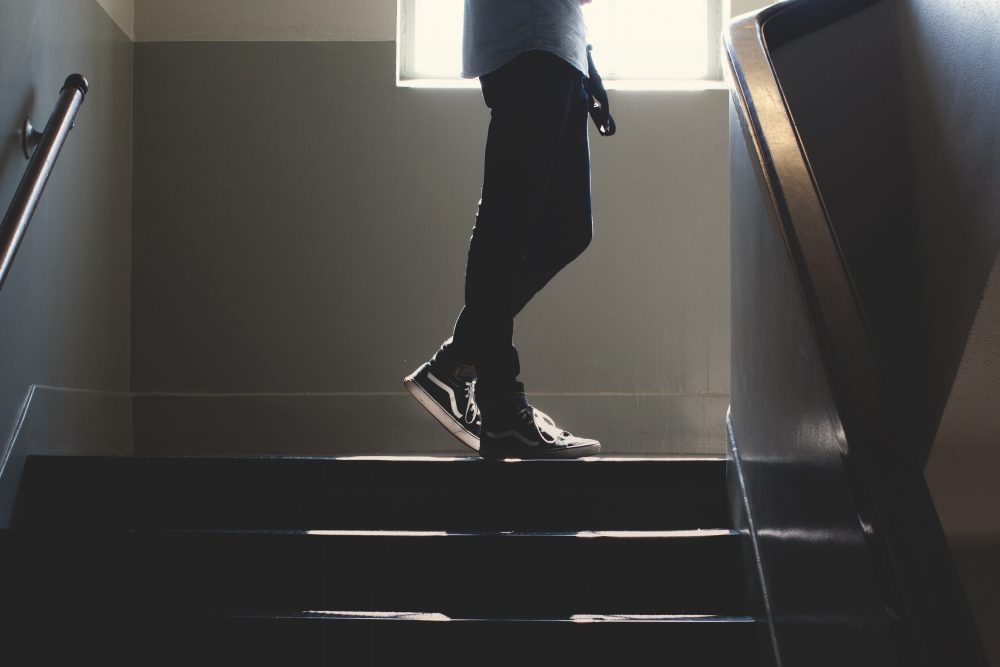
Here at SelfharmUK we want to help people understand their harming behaviour and explore other ways to cope with life's challenges.
If you get in touch we'll listen to your story and suggest ways to help you move forward ... but somewhere along the line we'll almost always suggest you visit your GP. This can be a really tough thing to do, we know it can be scary, and can mean having to tell your parents too (though not always) but we believe it can be a significant step towards feeling better.
We asked GP David Roberts what you can expect when talking to your doctor about self-harm and whilst this article is only a guide - and not a definitive set of facts - we hope it will help you feel more in control, if and when, you walk into that consulting room...
Why do I have to go to the Doctor?
Self-harming is usually an indication that all is not right. People sometimes do it because it relieves internal tension and stress. It is not a very good way of doing this and like drugs, alcohol and smoking ultimately doesn't do any good. But in the short term it gives a temporary relief from emotional pain. However, it can be a symptom of a more serious mental illness and so your doctor can make sure you get the help you need.
Can I go on my own or do I have to take a parent?
You can legally go to the GP alone aged 16, but doctors can accept that you may be able to make your own decisions about your health (eg contraception) from 14 if they think you understand things and are mature enough to do so. A doctor would want you to involve your parent(s) in your care until you are 16 and are likely to encourage you. They would not give you an injection or carry out an operation, or even do an intimate (embarrassing) examination (physical check) without your parent's permission before you are 16.
How can I get ready for my appointment?
Even if you are under 16 That does not mean that you cannot talk to them about your problems or issues. It is a good idea to think about what you want to say and write the main points down. Lots of people get embarrassed at what they want to say and so don't get to the point. Doctors are busy and don't get embarrassed by what you think or say, so it is better to take a deep breath and say it right at the beginning rather than put it off. They won't mind and it will give them more time to talk to you than if you spend the first five minutes talking about a rash that no one can see because it really isn't there! Think about what you want to get out of the appointment - do you just want to tell someone and get it off your chest, do you want help stopping it, do you want them to refer you on to someone who could give you specialist help? If you tell them what you want then they can work out how best to support you.
What will happen if I say I self harm?
Self harming is quite common and they will have seen other people who do it. So they won't be shocked, but they will be concerned. The biggest concern they would have is that you might want to kill yourself. Not many people who self harm want to do this but doctors have a professional duty to assess the risk of that happening. they are obliged to keep what you say confidential and private between you and them, unless you tell them something that they think might indicate that your health is seriously at risk (or you might be planning to do something that might endanger someone else) - see later - in which case they may be obliged to break your confidence. They should tell you this. They will want to help you, and so if you have plucked up courage to tell them, they will try to find ways to do that.
What will they ask me?
This might include asking some deep questions which you might find embarrassing: don't be though, they're only trying to work out what's making you do this. They'll ask about cutting, taking drugs, overdoses, and other ways you might be tempted to hurt yourself. They may ask you about how you feel (low, depressed, crying, worried, frightened, angry) and how things are at home or school or work. If they feel you trust them they might ask you to come back again to see them, and they might suggest that they refer you on to see a specialist from the CAMH service (people who work most of their time with young people with similar problems). They might encourage you to speak to a counsellor at school, particularly if there is someone there you feel you can talk to. They will want to know why you have come to see them at that time and to find out what help you want them to give you. You may not be able to say this, but if you've thought about it beforehand it will help.
Do they have to tell my parents?
They are obliged in law to protect you and others from actions you might take that might harm you or others. But they need to check how likely your might be to do something you say you want to do so they will question you quite hard. If you are under 16 and they think you are suicidal (or planning a murder!) they will have to tell your parents or other authorities. They will still encourage you to involve your parents as they have legal responsibility for you, but if the risk is low in their view, they will try their best to keep what you say confidential.
Will I have to show them where I have self-harmed?
They can't and won't force you (unless they are seriously worried about you being in danger and even then they will ask for advice from someone who specialises in child protection). They will want to assess how bad your injuries are - you might need antibiotics if your cuts are infected, and you might need dressings to protect the wounds.
Remember they aren't easily shocked or embarrassed and really want to help you - showing them the extent of your cutting will help them work out how serious the problem is and how to get you the best help.



